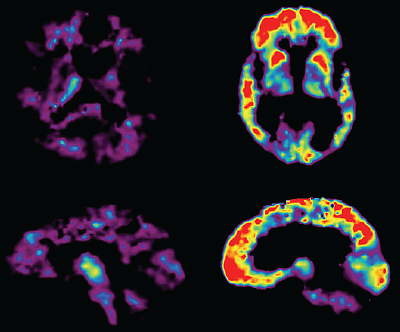A public-private partnership headed by the National Institutes of Health (NIH) has launched a publicly accessible data hub for storing, sharing, and analyzing biological data related to Alzheimer’s disease (AD).
This newly launched resource center is a component of the Accelerating Medicines Partnership (AMP), a large and unprecedented venture that brought together federal agencies, pharmaceutical industries, nonprofit organizations, and academic institutions with the unified purpose—breaking the dam that is holding back effective treatments for Alzheimer’s and other diseases.
“The enormous complexity of the human brain and the processes involved in the development and progression of Alzheimer’s disease have been major barriers to drug development,” said Richard Hodes, M.D., director of the National Institute on Aging, which is overseeing the AD arm of the new partnership (the project is also tackling type 2 diabetes and autoimmune disorders).
“Now that we are gathering the data and developing the tools needed to tackle this complexity, it is key to make them widely accessible to the research community so we can speed up the development of critically needed therapies,” Hodes continued.
The AMP-AD Knowledge Portal will host a range of molecular and pathological data generated from thousands of postmortem brain samples representing all stages of the disease process as well as clinical data from the patients who contributed the samples.
Four multi-institutional research teams are generating the data as part of the AMP-AD Target Discovery and Preclinical Validation Project; the teams use cutting-edge technologies to uncover the genes, proteins, and metabolites involved in the disease process. The first batch of information has already been uploaded, and the hope is that as this storehouse grows, researchers will be able gain a better understanding of AD progression at a systems level, which is vital in discovering new drug targets that have a chance of passing all the lengthy and costly hurdles of drug validation.
“We’ve seen from research in other diseases such as cancer that changes in genes don’t always correlate with the changes of their respective proteins, so it’s important to get the complete story,” said Allan Levey, M.D., Ph.D., chair of the Department of Neurology at Emory University School of Medicine and director of Emory’s Alzheimer’s Disease Research Center.
Levey is heading one of the four AMP-AD research consortia, and his team is focused on using proteomics to identify protein changes that occur early in AD development.
The need to mine such a comprehensive amount of data can seem daunting, but that is where the “open access” aspect of the knowledge portal becomes invaluable. “We’re still early in the process of acquiring data, but what is great about AMP is we have partners throughout academics and industry, so there will be many sets of eyes and perspectives looking at this information,” he told Psychiatric News.
“But it’s not just limited to the AMP team,” he continued. “Anyone who agrees to the terms can access the data, so who knows, it may end up that an inquisitive high school student looks at the data in a way we didn’t think of and has a great insight.”
The
AMP-AD Knowledge Portal was developed by Sage Bionetworks, a nonprofit organization that promotes open science. ■
More information about the Accelerating Medicines Partnership for Alzheimer’s Disease can be accessed
here.

